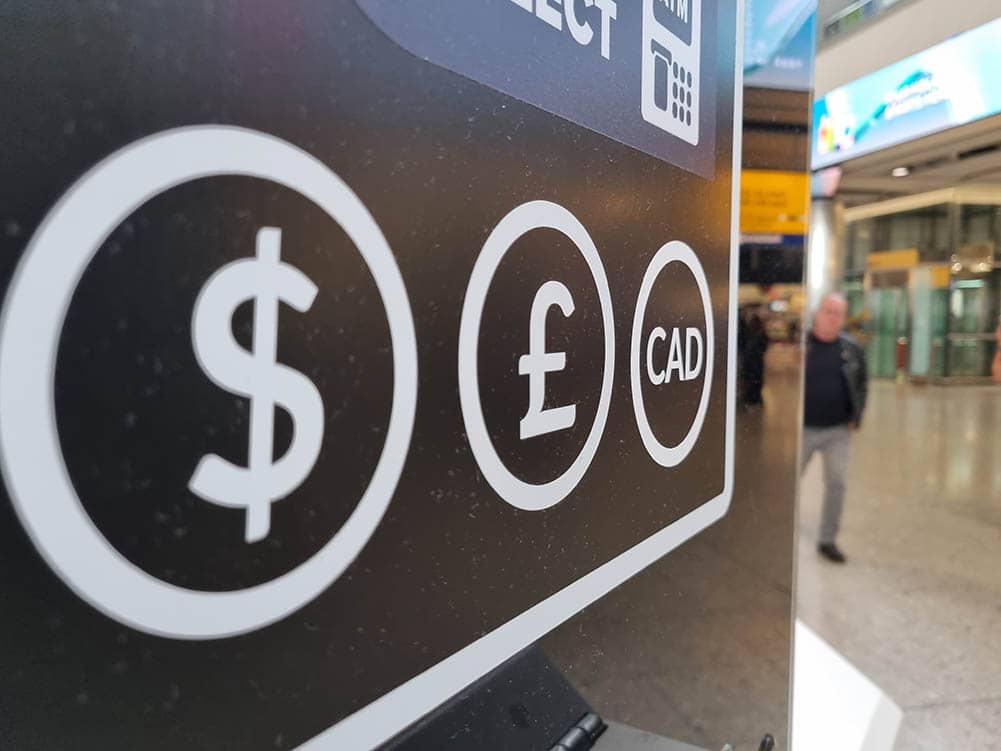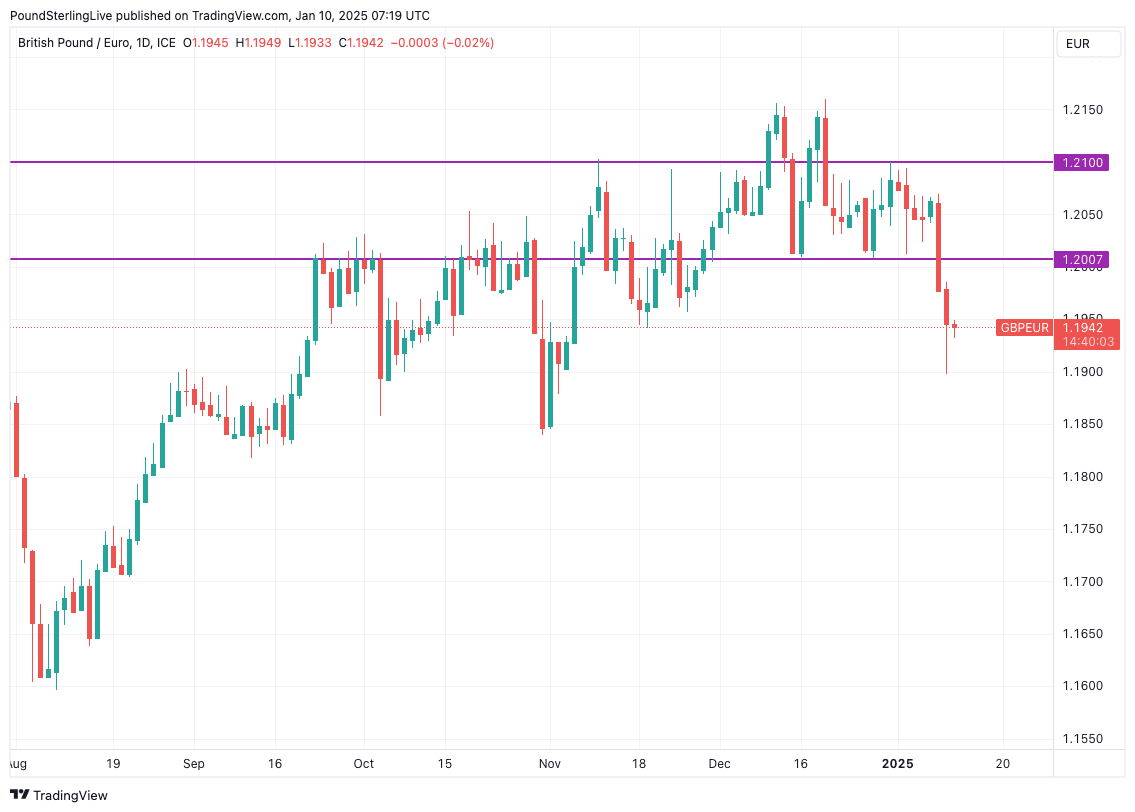Pound to Euro: Stabilisation, But No Fresh Highs says ING
- Written by: Gary Howes

Image © Pound Sterling Live
The Pound to Euro (GBP/EUR) exchange rate has taken a battering, but it could stabilise in the near term says a prominent market analyst.
Francesco Pesole, FX Strategist at ING Bank, says Pound Sterling and UK gilts look to have found some respite after a substantial selloff.
Stabilisation is partly attributed to a statement delivered to Parliament by Darren Jones, Chancellor Rachel Reeves' deputy, who said the bond market is functioning in an "orderly way".
Compare Currency Exchange Rates
Find out how much you could save on your international transfer
Estimated saving compared to high street banks:
£2,500.00
Free • No obligation • Takes 2 minutes
He added that "there should be no doubt of the government's commitment to economic stability and sound public finances. This is why meeting the fiscal rules is non-negotiable."
The UK Treasury on Wednesday gave a rare statement and said that the government was fully committed to its fiscal rules and that it would cut spending if needed in order to stabilise the financial outlook.
"The UK Treasury’s pledge to stick to fiscal rules means more potential pain for sterling down the road, but it should allow some stabilisation in the short term," says Francesco Pesole, a strategist at ING Bank.
UK ten-year bond yields surged to their highest level since 2001 on Thursday, but buyers stepped in at these levels, seeing attractive returns.
🎯 GBP/EUR year-ahead forecast: Consensus targets from our survey of over 30 investment bank projections. 📩 Request your copy.
Demand helped stabilise the selloff, bringing yields back down to around 4.80%.
Pesole says this has allowed the pound to partially recover."
GBP/EUR fell to a low of 1.1898 before recovering to 1.1936, where we find it on Friday.

Above: GBP/EUR might settle into a new, lower range.
UK bond markets have come under pressure as investors worry about the outlook for UK debt dynamics. Seeing slumping economic growth, they believe tax revenues will fall short of expectations in the coming months.
With debt dynamics deteriorating, demand for UK government bonds wanes, mechanically pushing up the yield on the bonds. This means the government has to pay more to compensate creditors.
Rising debt costs mean Reeves now has limited headroom to play with in upcoming budgets, raising speculation about the need for further debt-crushing tax hikes and/or spending cuts.
"Chancellor Rachel Reeves is more likely to deliver some fiscal consolidation should the updated OBR forecasts (released 26 March) show the government is not on track to meet the fiscal rule," suggests Pesole.
"That consolidation means higher taxes or lower spending – with the latter generally deemed more likely at this stage," he adds.
Crucially, however, ING says the UK is not experiencing a sovereign debt crisis, and the rise in yields is – so far – justified.
"This suggests we can expect some short-term respite for the pound," says Pesole.
But the scope for a strong rebound looks limited.
The Dollar remains the top-performing currency, and the Euro looks to be oversold and increasingly unwilling to fall against a host of currencies as expectations for ECB rate cuts appear to have peaked in the wake of this week's above-consensus inflation print.
Pesole says the Euro already has "lots of negatives in the price."
Short-term interest rate dynamics are now stretched, and ING says "markets are pricing a good deal of negatives into the euro at this stage."
"One positive development for the euro has been the correction in TTF gas prices, now at 45 EUR/Mwh after having touched 50 EUR at the start of January. Markets have seemingly been reassured by forecasts of milder weather in Europe and robust LNG supply from the US," notes Pesole.




